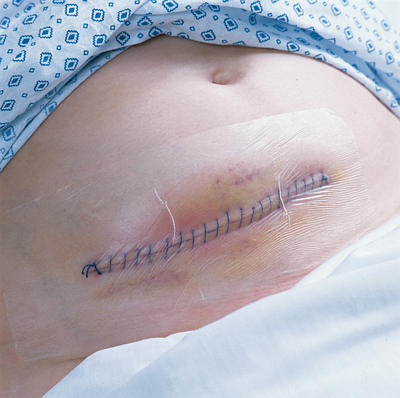How to Care for Surgical Wounds

Surgical wound can result in after going through an operation or any other procedure that involves a cut into the skin. The position and the size of the cut depend entirely on the surgery you have gone through.
The surgeons usually use stitches, clips or skin glue to sew the skin edges after the surgical procedure. There are various kinds of surgical wounds. So, it is always best to follow your surgeon’s advice.
Wound healing actually consists of three different stages: inflammation, proliferation and maturation. The skin edges mostly form a seal in few days. But you cannot afford taking things lightly.
The wound should be carefully treated, as it may turn into a big thing. There are various types of wound healing complications. One may catch an infection after the surgery. Smoking, diabetics and other problems like leukaemia and chemotherapy could initiate the infection.
Instructions
-
1
Change the dressing regularly
Some surgical wounds require dressings. It is better to take proper guidelines from your surgeon. The main purpose of a dressing is to absorb leakage, improve the healing, eliminate the risk of infection, prevent the stitches from catching the clothes, and protect the wound from dust and dirt.
You can keep the original dressing for maximum 3-4 days. After that, you are required to change the dressing on regular basis. After removing the previous bandage, clean the wound with the sterile gauze. Try not to use any antiseptic cream under the dressing. -
2
Take Care of Stitches
If your wound has dissolvable stitches, they will disappear within two to three weeks. On the other hand, the doctors usually remove the non-dissolvable stitches after 21 days.
During this period, you need to take very good care of your stitches. Avoid touching them with your finger. Also prevent the clothes from rubbing the stitches. -
3
Eat and Drink properly
Your body require plenty of energy to heal the wound quickly. Vitamins and protein speeds up the healing process. Eat well and avoid getting dehydrated. If you are overweight, you may take a little extra time to recover. -
4
Bath and Shower
It is possible to take a bath after 48 hours of surgery. You need to keep your body as clean as possible. However, make sure your wound stays dry. Take a bath regularly, but don’t let the water and soap reach the wound.




